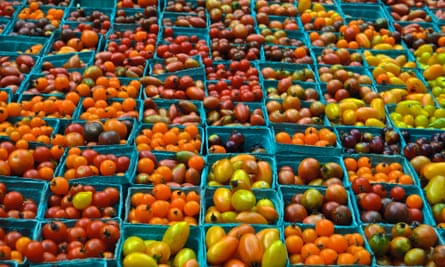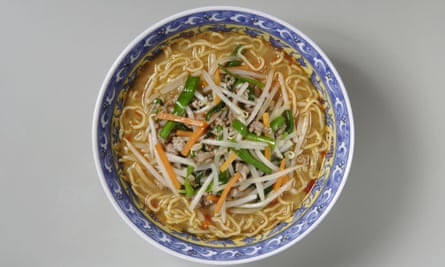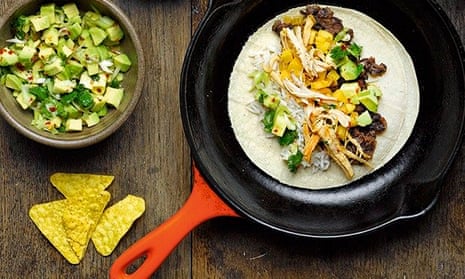Food trends change with alarming speed. Often, they’re prompted by the foodie elite, influential restaurateurs, or even pop culture. And while an emphasis seems to be placed on specific ingredients, it is also common for the cuisine of an entire culture or nation to be deemed trendy.
In 2015, it is supposedly Filipino food, a trend that Andrew Zimmern, chef and host of Bizarre Eats, predicted at the 2014 Food & Wine Festival. He said:
I think what’s going to happen – just like with everything – is we’ll go around the world and take a look at the things people haven’t seen before and haven’t fetishized yet. And then we’ll fetishize. People to blame are folks like me who run around the world, holding up foods and saying, ‘Hey, fetishize this!’
This brings us to cultural appropriation: a practice that involves taking parts a specific culture, commodifying and trivializing them along the way. Think of the hipster wearing a Native American headdress to Coachella, or the sorority girl donning the “sexy geisha” costume for Halloween.
Food doesn’t often arise as a topic in the discourse of appreciation versus appropriation, perhaps because it seems an innocuous enough item more conducive to cultural exchange. We all love Chipotle, after all.
However, this goes beyond burritos – it comes down to recognizing that our attitude toward food from different cultures can in turn inform our attitudes about said cultures. Think about it: food is a sensory experience that can bring joy; it’s the feeling of warmth and care that come rushing back when eating a bowl of chicken soup similar to the recipe your grandmother prepared.
Jennifer Jordan is an associate professor of sociology at the University of Wisconsin-Milwaukee. Her book, Edible Memory: The Lure of Heirloom Tomatoes and Other Forgotten Foods, takes a look at how nostalgia and food are intertwined.
“There’s a physiological connection – smell is the sense that is actually responsible for much of what we experience as flavor, and the sense of smell is very directly, quite literally, connected to the part of our brains responsible for memory. It’s not a coincidence that a particular smell – or flavor, which we ‘taste’ more with our noses than our tongues – can instantly trigger a very vivid memory.”

She continues: “I read thousands of newspaper articles, reference books, visited dozens of farms and gardens, talked to chefs, farmers, gardeners. And what I found was people attaching memories and stories about the past to tomatoes, apples and all kinds of other foods.”
Her research is transferrable to specific cuisines and dishes, too. “Once you bring cooking and spices into the mix, the question of passing down particular recipes –and flavors and memories – gets that much more intense.”
Jordan said that it can be really important for people who have moved to a new country to recreate the flavors of home in order to tap into that emotional connection.
Building upon that, using someone else’s cultural symbols as a hobby can turn into an exercise in privilege – like when a food experience becomes more about an obsession with “authenticity” rather than enjoyment.
We all know these people: they return from a “life-changing” trip abroad, determined to find most authentic domestic version of their latest culinary obsession, which is all well and good, until they use it as a platform for their personal worldliness.
Writer and comic book artist Shin Yin Khor captured the phenomenon in her comic Just Eat It. The final panel of the comic reads:
Stop thinking. Just slurp the noodle in your mouth. I don’t need you to tell me about your spiritual awakening, or your surprise at how modernized our cities are, or how charmed you were that English was so widely spoken … Eat, but don’t expect a gold star for your gastronomical bravery. Eat, but don’t pretend that the food lends you cultural insight into our ‘exotic’ ways. Eat, but recognize that we’ve been eating too, and what is our sustenance isn’t your adventure story. Just – eat.
Sarah Cappeliez, a PhD candidate at the University of Toronto, focuses the cultural elements of food practices in her research. She expands on Khor’s statements:
“People with a particular disposition to and interest in food – ‘foodies’ – generally enjoy dining at the most authentic Thai restaurant, or the most exotic new ethnic hole-in-the-wall they can find. This ‘food adventuring’ is a type of pastime, but it can also be accompanied by a true appreciation of culinary diversity, or, more importantly, of the diverse cultures that produce the culinary delights they enjoy,” Cappeliez said.

She continues by saying that generally speaking, people who fit in the “foodie” category are also interested in finding out more about the particular dishes and cuisines they are exploring. In fact, part of the appreciation for these cuisines derives not solely from their taste, but also from the surrounding knowledge elements – the history of a dish, how to serve it properly, what version is the most “authentic”.
“That said, the line is very fine, and the very idea of food adventuring can be problematic in its own right because it does not necessarily signal any sort of true engagement or real interest in the cultures that are being ‘experienced’ through food,” Cappeliez said. “Eating a particular cuisine, even if it’s the most authentic possible, does not lead on its own to a better or deeper understanding of the culture that produced that food, and in that way, should be treated as a very partial, albeit fun, part of knowing a culture or ethnic group.”
Returning to the idea of food as a trend, Paul Qui, winner of Top Chef Texas and the 2012 recipient of the James Beard Best Chef Southwest award, agrees that sometimes the hype built around a culture’s cuisine can be used as an opportunity to educate people. Born in the Philippines, the cuisine Qui prepares often references the food he ate as a child.
“To me Filipino food is not a trend, it’s my heritage and culture, but in order to get exposure, it needs to get noticed,” Qui said. “Once a cuisine gets to this stage I think that the culture should be flattered that it’s become so popular. This gives the cuisine, the platform it needs to truly spell out what that culture’s heritage and cuisine are.”
However, he said that that it is just silly for people to brag about their food experiences. “I know that someone else knows more than I, being a student of food is being a student for life,” he said.
Qui continued: “People in general have too much ego, and it’s the only ingredient I don’t allow in any of my kitchens. If you come from an open place, I feel that you can truly appreciate and discover a culture’s cuisine from its core.”

Comments (…)
Sign in or create your Guardian account to join the discussion